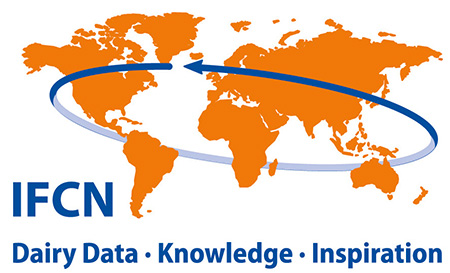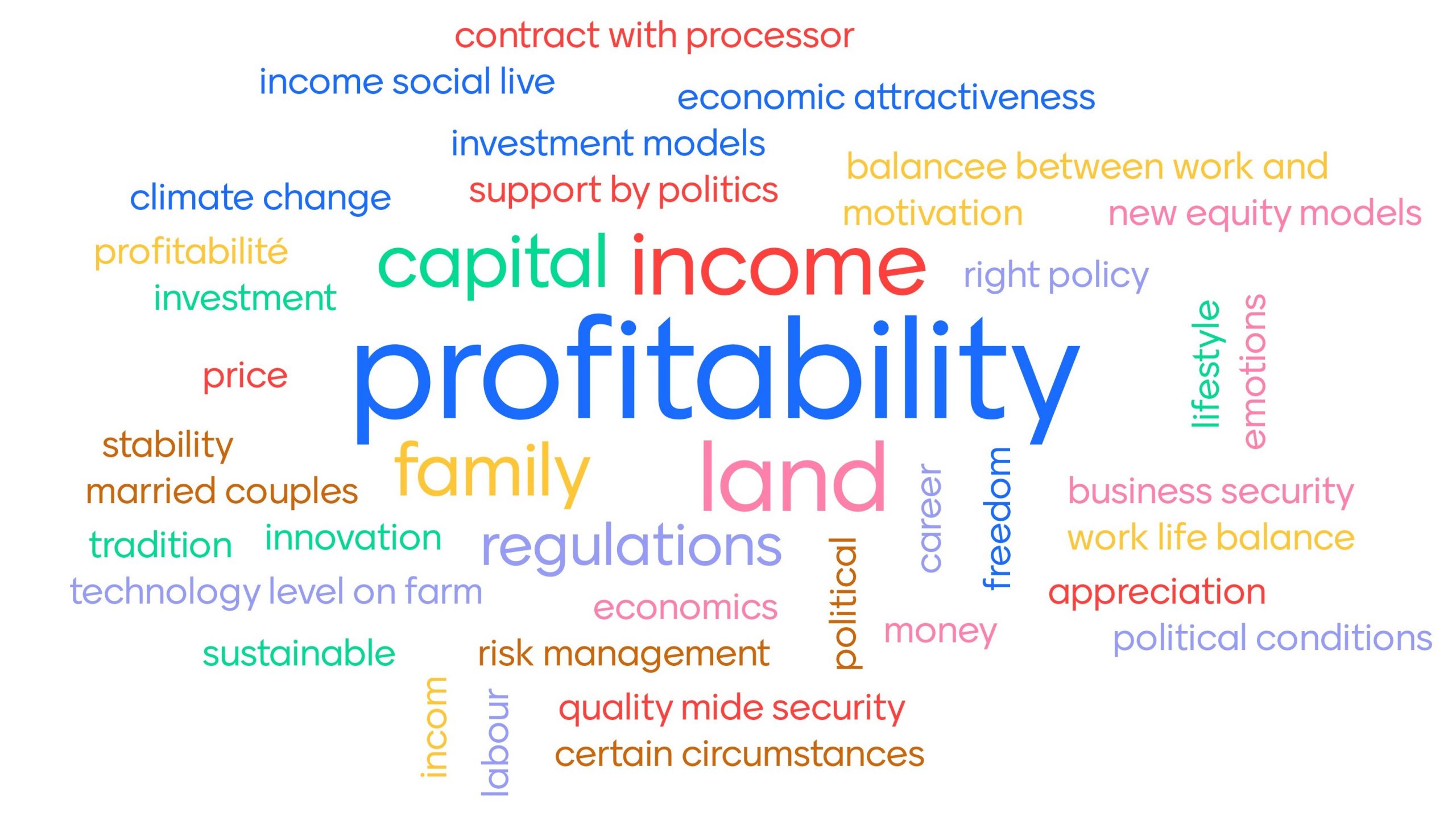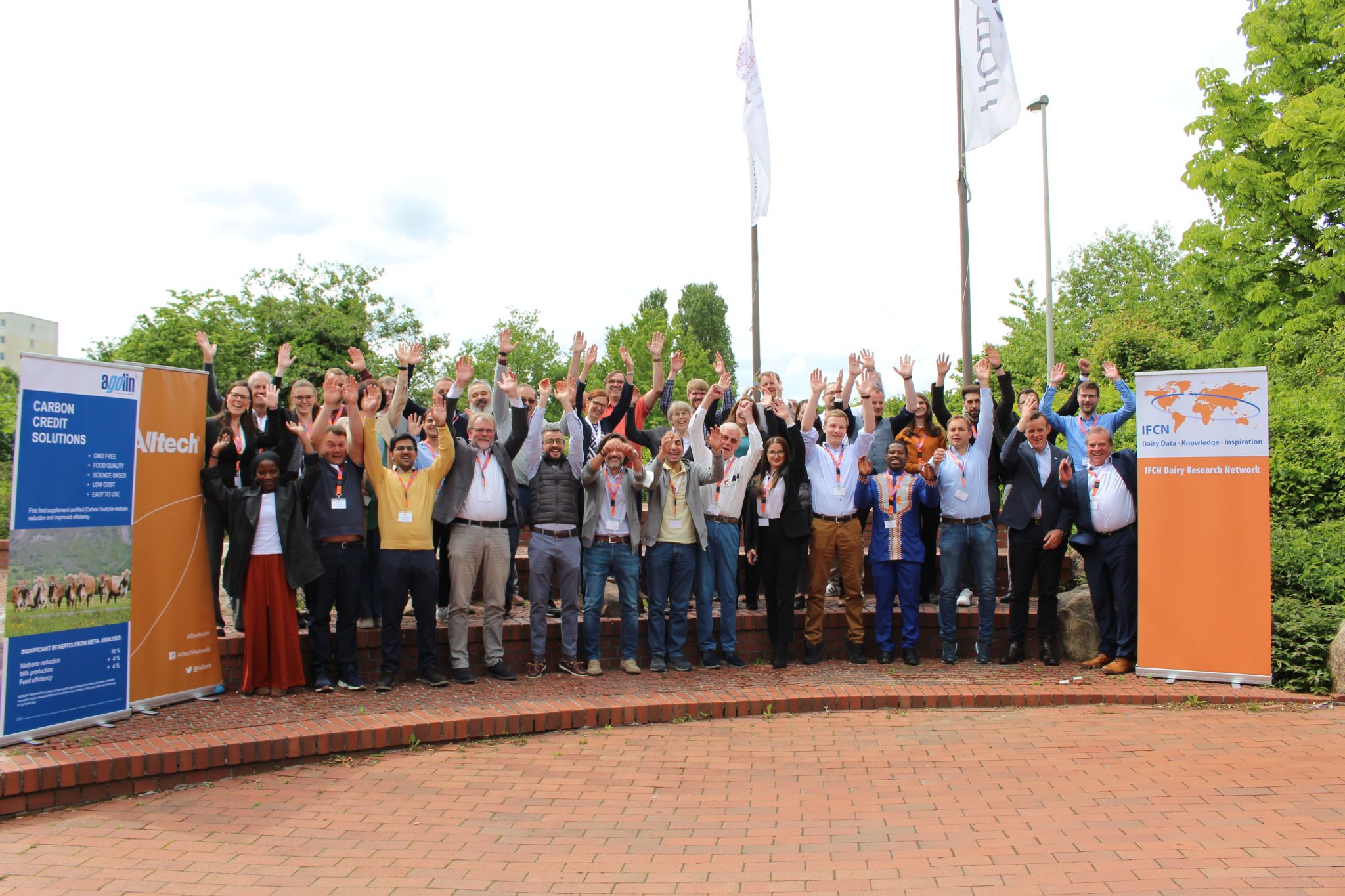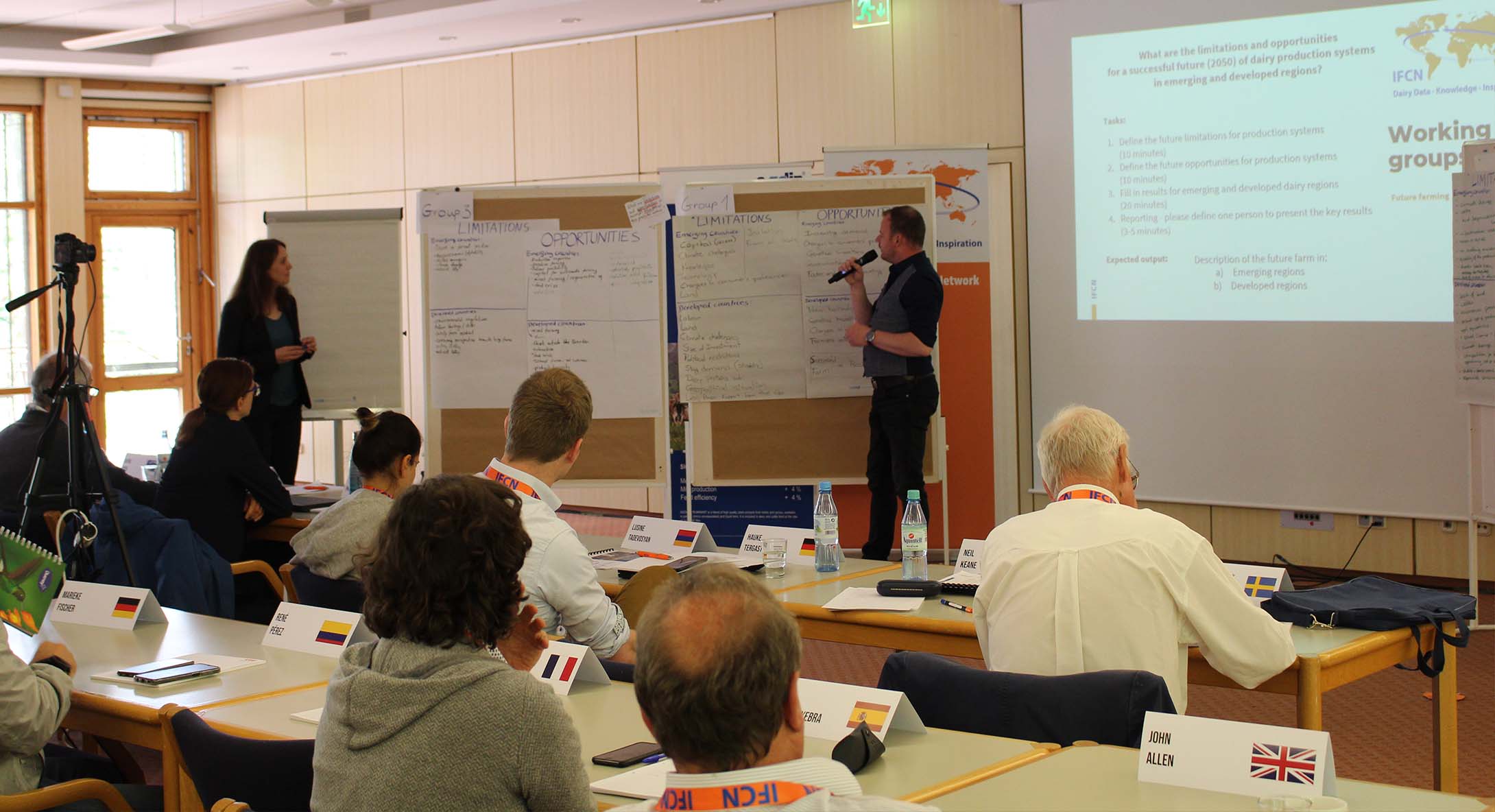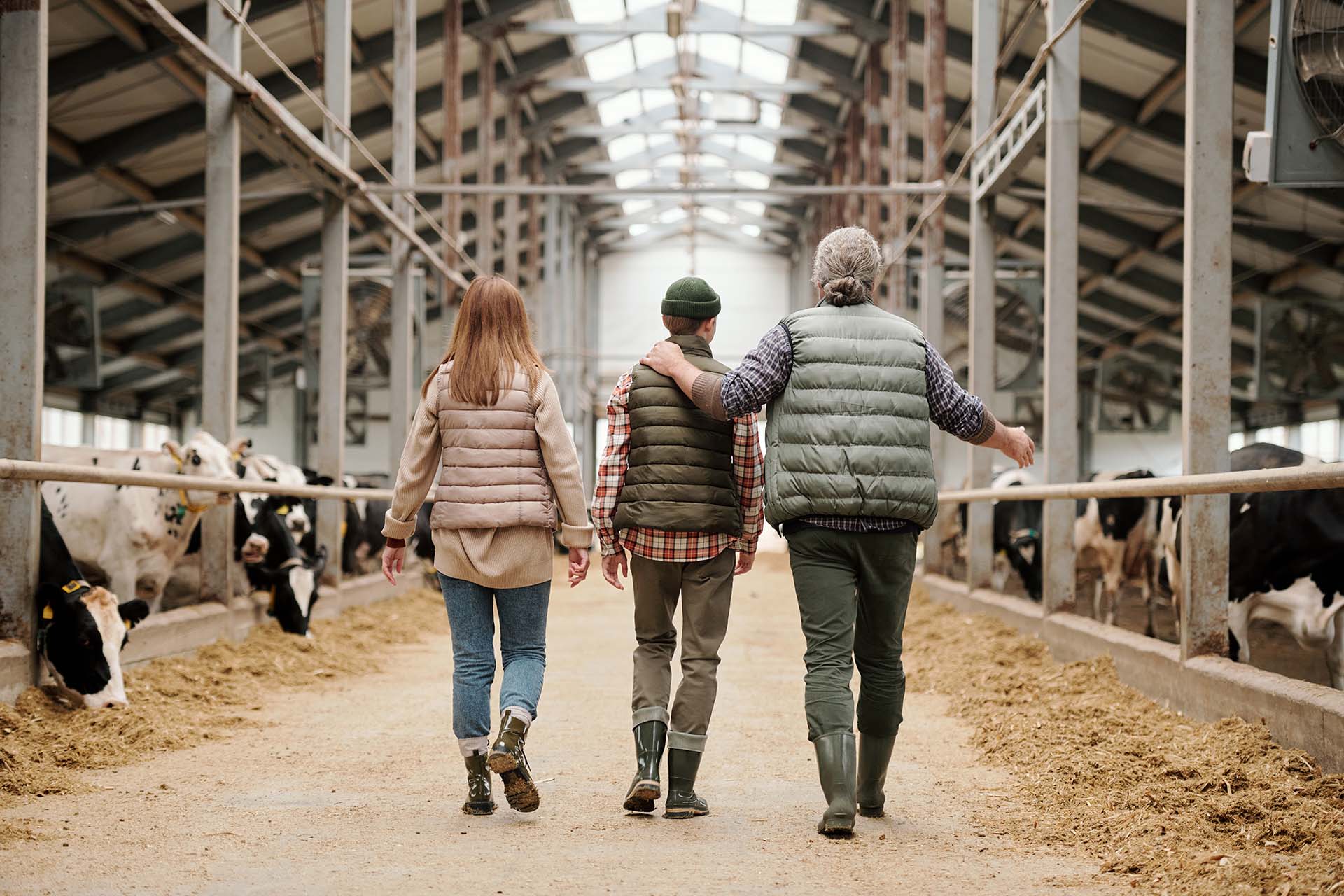
This year’s IFCN Dairy Conference focused on the next generation of dairy farmers and dairy farming systems. IFCN’s first hybrid event recorded over 500 registrations and brought people from the dairy sector together in Kiel, Germany.
In 2050, the food industry will need to sustainably feed 10 billion people. The current 120 million dairy farmers stand to play a large part in this, as they provide a key source of protein intake and thus have a major impact on global food security. However, 427 thousand farms quit each year and the milk pool is shrinking, with farming rarely profitable. This raises the question: How can the next generation develop economically successful farms while meeting the demands of the new generation of consumers and the industry?
The Dairy Conference provided a platform by bringing together speakers and panelists from research institutions and companies to discuss the attractiveness of dairy worldwide and the opportunities and limitations of current farming models.
A closer look
From the data presented and during the discussions, different results emerge depending on the world region. In emerging markets, growing demand and suitable technological integration could offer great opportunities if the lack of capital, infrastructure and knowledge can be addressed.
Developed regions, on the other side, generally have access to capital, but investment is fragmented and the attractiveness of dairy work, and therefore the available skilled labor, is declining. What both regions have in common for dairy farming to thrive is the need for profitability, access to land, and stable politics.
In addition, there are external factors related to society’s acceptance of dairy farming. The new generation of farmers is facing a new generation of consumers who are demanding solutions for, among other things, reducing carbon emissions, animal welfare and transparency in the value chain.
READ MORE ABOUT THE NEW IFCN DAIRY OUTLOOK
What does a farm of the future have to look like?
As always, there is no one solution for all – farms of the future will have to adapt their operations to the place where they are located, so flexibility is needed to find individual, profitable operating models to survive in volatile times. Young farmers will not continue or even start dairy farming if they do not have long-term profitability prospects. But without them, food security quickly becomes problematic.
What does this mean for the future?
To meet the challenges, young farmers need to focus on farm-level improvements, such as labor-saving technologies, better genetics and knowledge transfer, and build bridges to the new generation of consumers.
The result of a survey among all conference participants showed that farmers should take the lead in developing these future farming systems. This means even greater responsibility for them, so a suitable and reliable environment is essential. Neil Keane from Alltech says: “We need reframing of the farmer as food producer and environmental steward and a greater appreciation of their contribution”. All players in the dairy value chain should feel encouraged to use the decision-making tools available to support this change.
IFCN would like to thank all participants, panelists and gold and silver sponsors Alltech and Agolin for their contributions that will help dairy farms as they move into the future.
Gallery
IFCN upcoming events
IFCN Market Intelligence Training 2022 – LIVE EVENT
